Case Study #4: Training Students’ Self-Leadership in the Core Curriculum of Tourism Education at BUas
Case Study #4: Training Students’ Self-Leadership in the Core Curriculum of Tourism Education at BUas
How Structured Reflection is Helping Future Tourism Professionals Develop Self-Awareness and Career-Readiness
Introduction
Tourism is a dynamic and people-centered industry that requires adaptability, critical thinking, and strong interpersonal skills. At Breda University of Applied Sciences (BUas), the Tourism Management program is not just preparing students with industry knowledge but also helping them develop the self-awareness and reflective mindset needed to thrive in their future careers.
To support this, BUas has integrated Rflect into its curriculum, providing students with a structured way to engage in continuous reflection on their learning experiences, professional growth, and personal development. The tool has become a key component of the program, allowing students to track their progress, set goals, and connect classroom learning with real-world applications. It is also a key way for the BUas team to scalably coach students and help them build essential skills for studying successfully.
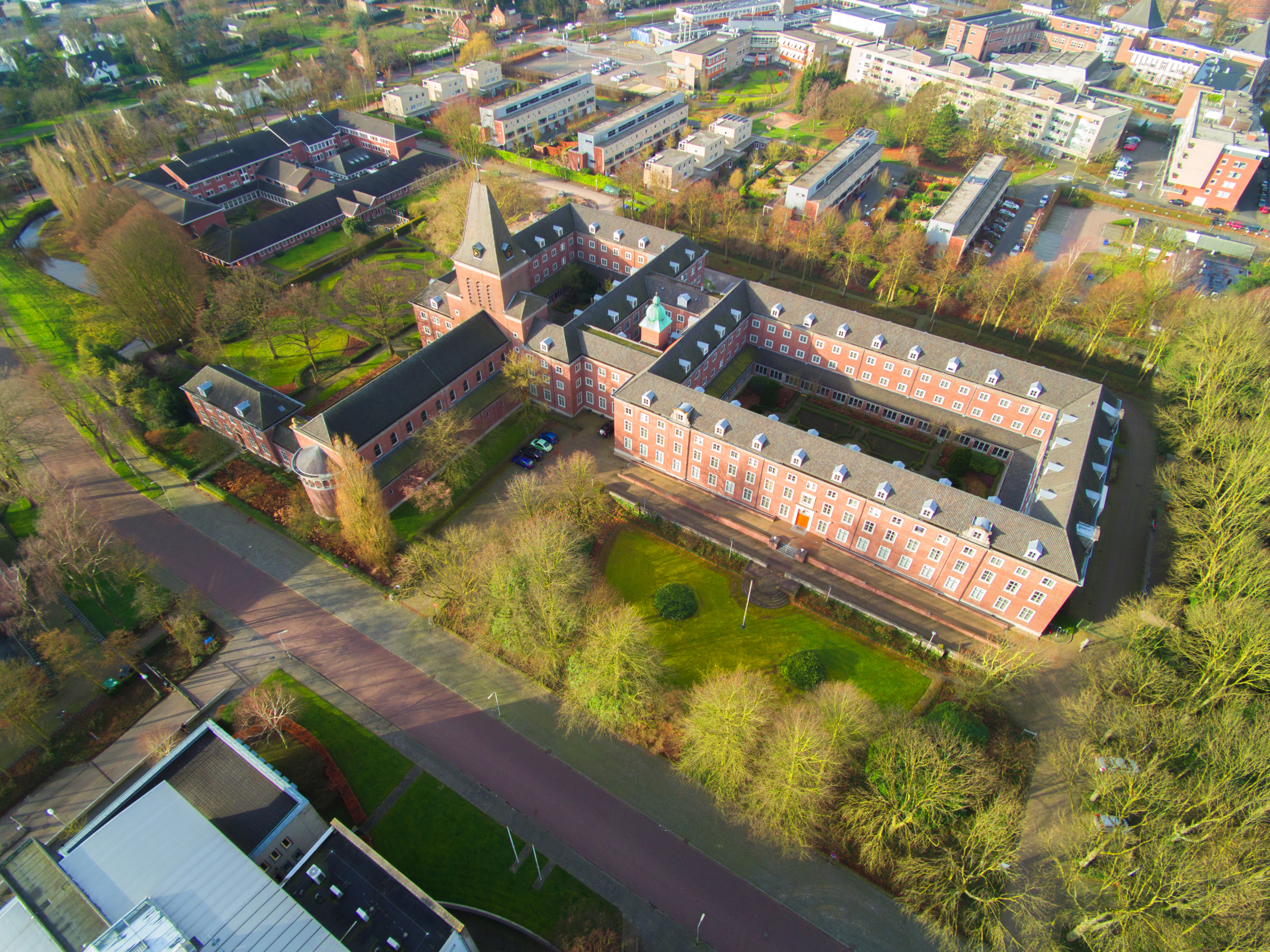
This shift is part of a broader transformation in how the program approaches student development, sparked by the recognition that many of the essential skills for future tourism professionals involve self-awareness, adaptability, and resilience.
The flexibility of the platform has also been a key advantage for the faculty, allowing lecturers to adapt reflection topics based on student needs in real time, as well as to track their well-being and engagement levels, identifying those who might need extra support promptly.
We wanted to get all sides of the story for this case study article, so we interviewed Program Manager Nova van Schijndel, Teaching Assistant Casimir Meulendijks, and one of the program’s students, Ema Kondákorová.
Through interviews with them, we explore how Rflect is shaping the student experience at BUas. From enhancing self-directed learning to deepening engagement with course material, their insights highlight how structured reflection can be a game-changer in higher education.
How
The Tourism Management bachelor’s program at BUas follows a project-based learning model, structured into two 10-week blocks per semester, with students earning 15 ECTS per semester. Learning takes place within small, dynamic learning communities, where students collaborate with lecturers and industry professionals. This hands-on approach encourages students to learn by doing, exploring real-world challenges, applying their knowledge, and refining their skills through reflection.
To empower students to take ownership of their learning, BUas integrated Rflect from the very start of the program. Students dedicate 2-3 hours per week to structured reflection, using Rflect to track their well-being, learning progress, and support needs. The platform also introduces bite-sized exercises to help students develop and apply new competencies. Reflection is not a solitary activity: a dedicated team of coaches and teaching assistants actively engages with students’ reflections, offering feedback, support, and intervention when needed. This structured support system has been essential in ensuring that students and lecturers alike fully embrace and benefit from Rflect.
At the start of the implementation, BUas worked closely with Rflect’s team to align the platform with the program’s intended learning outcomes (ILOs). While the Rflect team facilitated the setup, it soon became clear that for optimal integration, the university staff needed to take ownership of the process. Over time, through workshops, feedback loops, and hands-on experience, BUas educators became increasingly confident in defining competencies, crafting reflection prompts, and tailoring the experience to their students’ needs. By Block 4, the BUas team was fully leading the process, relying on Rflect primarily for content and exercise recommendations. The train-the-trainer approach had been successful.
This collaborative evolution has not only enhanced the student learning experience but also empowered the BUas team to embed reflection deeply into the curriculum. With each iteration, reflection has become more than just a practice: it has become an integral part of how students develop self-awareness, resilience, and career-ready skills.
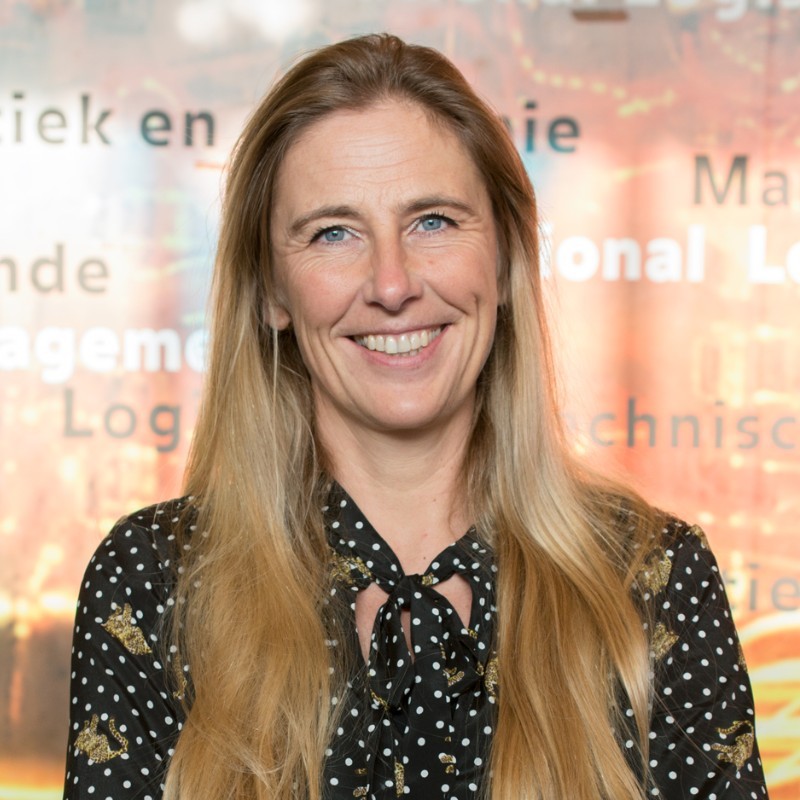
The Program Manager’s Perspective
Nova van Schijndel is the Program Manager for the Academy for Tourism at Breda University of Applied Sciences in the Netherlands.
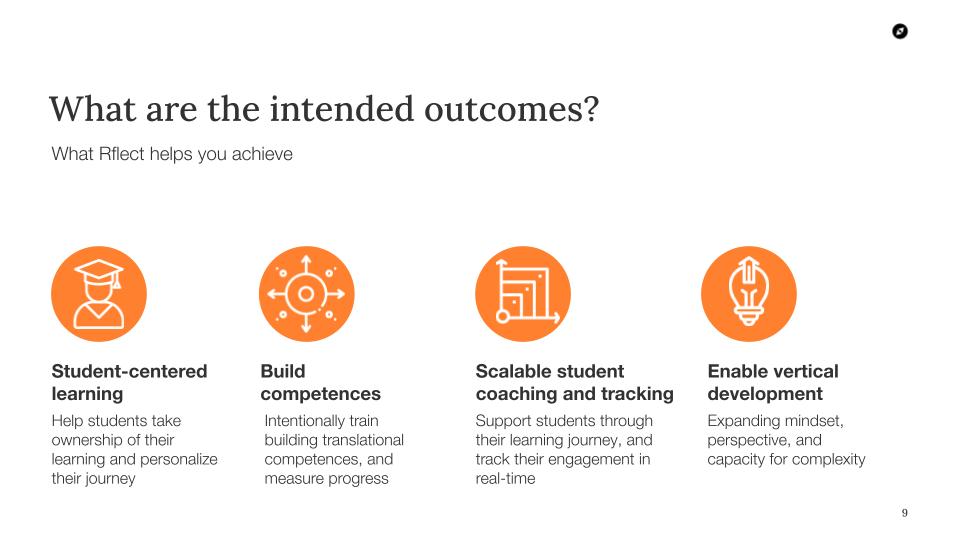
When we defined the core tasks for the program, we listed the skills future tourism professionals should have. We realised that almost half of them consist of inner skills like resilience and motivation for lifelong learning. So we quickly made the connection to the Inner Development Goals (IDGs) and developing those skills within our student population.
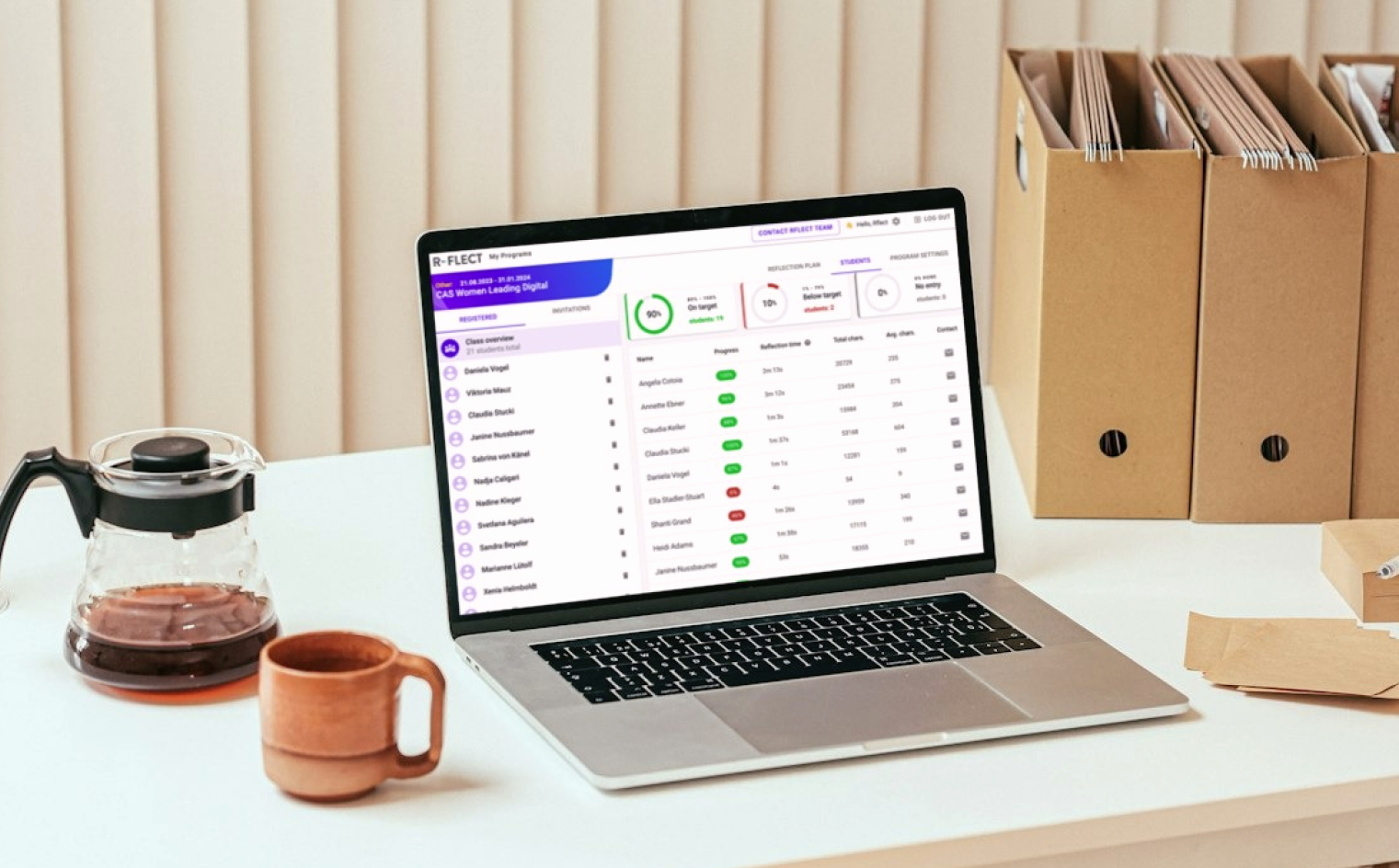 Rflect is very flexible, easy to use and to integrate in the program. Plus, it can be adapted to any situation you’re in at a specific moment. For instance, if we receive feedback from students that they want to focus more on planning and organizing skills development, then we can adjust the reflections to focus on those themes in the upcoming weeks. That flexibility is extremely valuable to us because, generally, we’re used to developing an education program with fixed topics for the whole term. Now, with the feedback we receive from students, we can easily adapt to evolving situations that serve them better.
Rflect is very flexible, easy to use and to integrate in the program. Plus, it can be adapted to any situation you’re in at a specific moment. For instance, if we receive feedback from students that they want to focus more on planning and organizing skills development, then we can adjust the reflections to focus on those themes in the upcoming weeks. That flexibility is extremely valuable to us because, generally, we’re used to developing an education program with fixed topics for the whole term. Now, with the feedback we receive from students, we can easily adapt to evolving situations that serve them better.
By looking at the answers from the students, if we see that something is not going well, we react and ask for appointments or offer our support. But we also want to coach students when things are going well: we can steer them towards making the best use of their talents. That’s how Rflect helps us improve coaching, not replace it. Some people might fear it’s a tool to replace them, but it’s actually through analysing the data that we can coach more students and more efficiently.
Key Outcomes for Each User Group
For Nova, here are the hopeful outcomes of using Rflect for students, lecturers, and institutions.
Students
The hopeful outcome for students is to become aware of their potential and understand that they are the ones steering their own development, with the help of tools like Rflect.
Lecturers
Rflect helps lecturers gain deeper insights into students’ development, particularly regarding the IDGs, by leveraging the data we collect.
Universities
The educational system asks for a data-driven approach. Rflect helps us gather data about what makes students tick, develop their talents and be satisfied with their learning journey.

The Implementer’s Perspective:
Casimir Meulendijks is a Teaching Assistant at the BUas’ Academy for Tourism.
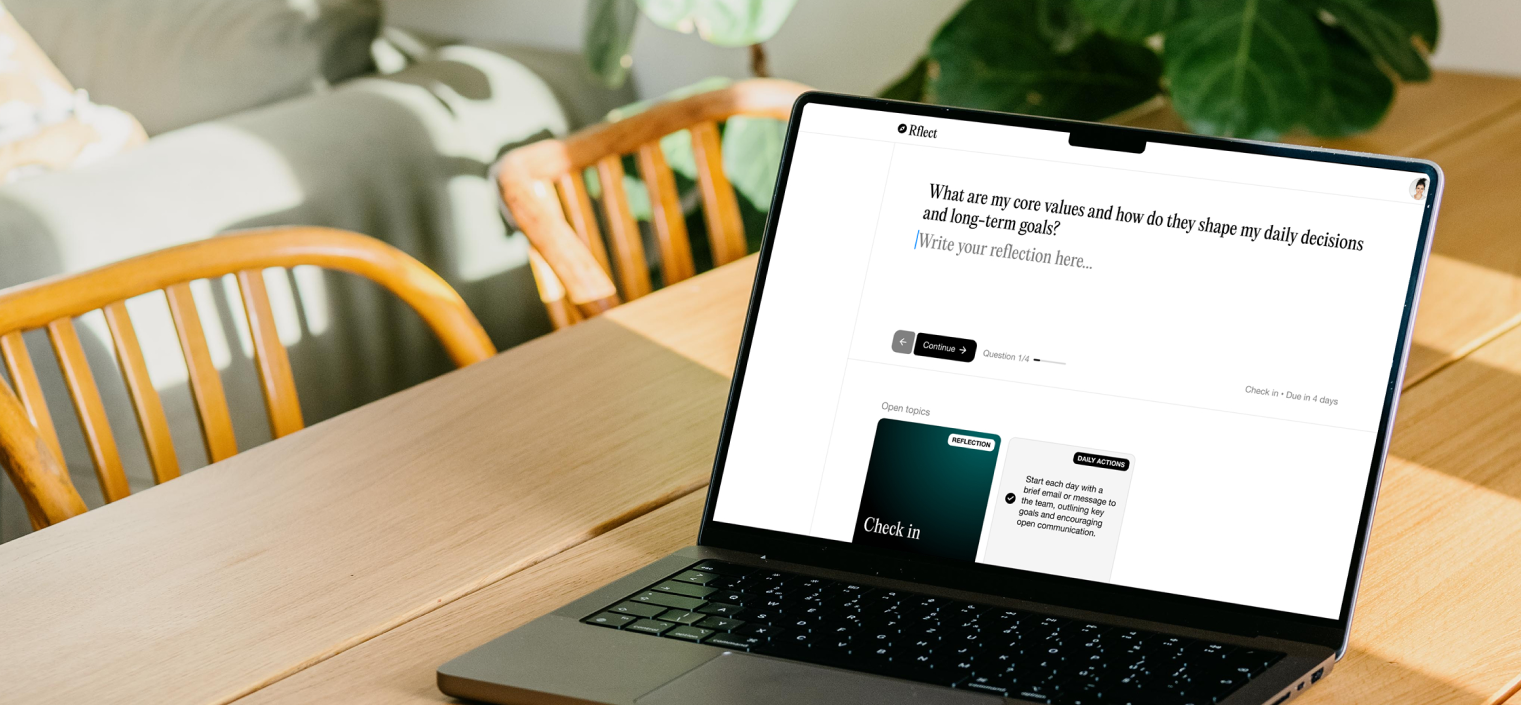 *Before Rflect, we were using a more traditional approach with group coaching and some one-to-one sessions. I think the main value of this new system is that it’s more accessible and students can use it more frequently. Plus, being able to reach out to the students digitally, without having to see them all, means we can ask everyone the same questions on how they’re doing this week and their motivation levels and whether they need something… It’s quite easy to keep track of the students this way.*
*Before Rflect, we were using a more traditional approach with group coaching and some one-to-one sessions. I think the main value of this new system is that it’s more accessible and students can use it more frequently. Plus, being able to reach out to the students digitally, without having to see them all, means we can ask everyone the same questions on how they’re doing this week and their motivation levels and whether they need something… It’s quite easy to keep track of the students this way.*
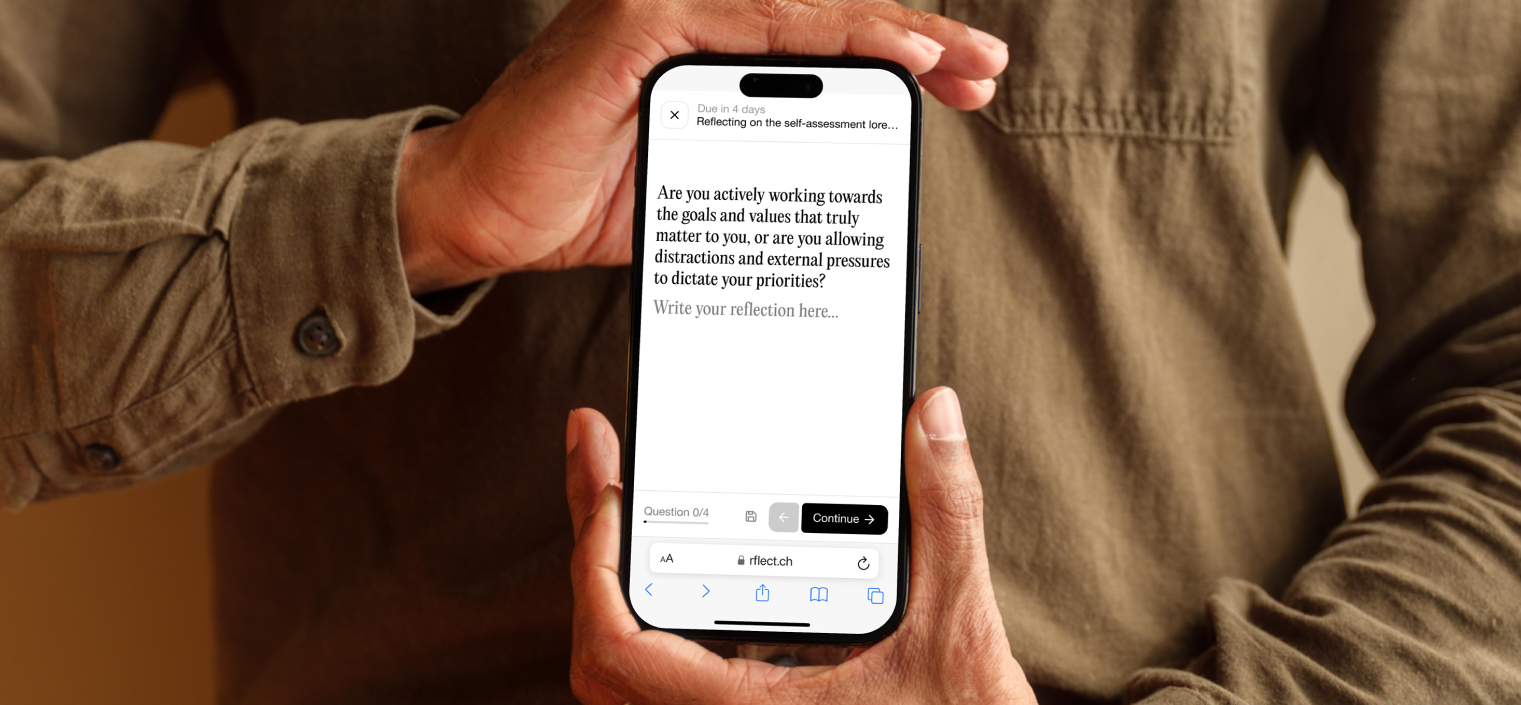
I think the biggest value for students is that they are constantly encouraged to be aware of their development, and because of the higher frequency of reflection and sharing moments, they become more self-aware, thus promoting self-leadership and development. They work on all kinds of competencies and skills that they need to be tourism professionals. Obviously, not every single student feels motivated to use Rflect, but most of them are, and it’s not our job as educators to do what students like, but what helps them.
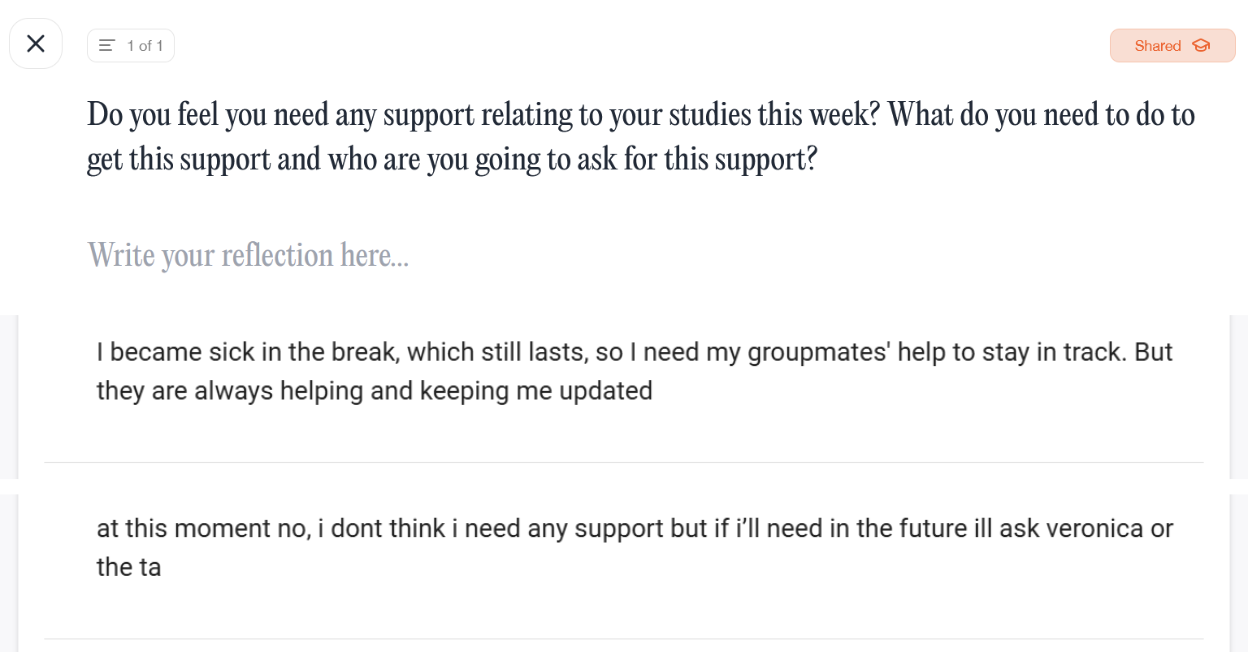
We always ask our students how they’re doing, and I remember one time, specifically, a student said she wasn’t feeling well and wasn’t sure if she needed support. So I reached out to her, and we had a really nice insightful conversation where she told me about some personal issues and the stress she was experiencing. I was able to offer guidance, put her at ease, tell her she didn’t have to worry and we would find a solution together. It’s great for students to have a place where they can share without having to step forward and directly tell a teacher something personal. The barrier is lower for them and this really helps. It’s also easier for us to keep track of them.
I feel like reflection in general, writing things down and being aware of your progress, can really help become more aware of your learning curve. It’s not always clear to students what they are learning, and I think by making them aware of the competencies and skills they’re working on, and writing them down, it gives them a kind of backlog.
Key Outcomes for Each User Group
Here are the hopeful outcomes of using Rflect according to Casimir.
Students
Students can be fully aware of their self-development during their studies: aware of their pitfalls, their strengths, and their goals. Ultimately this makes them better prepared for life. It also promotes learning curiosity.
Lecturers
Lecturers don’t assess students only based on grades and exams, but also on a broader level. This way, teachers can help students grow as people, following their learning curve and self-development.
Universities
The hopeful outcome is that we deliver people that are resilient and prepared for the real world. Not just good students but conscious human beings, aware of their strengths and weaknesses that can be good learners in all kinds of contexts.
The Student’s Perspective:
Ema Kondákorová is a student at the Academy for Tourism, Breda University of Applied Sciences.
What I value most is the fact that I can say what I have in my heart and on my mind, especially with the more personal questions, which helps me engage and develop myself. It’s a bit like journaling. The shared questions, on the other hand, give me the opportunity to reach out to my teachers, which is also very helpful.
I personally love the first questions when I open Rflect on Mondays and Fridays about whether I’m motivated this week because they really make me think about what makes me happy and keeps me motivated. That helps me focus on my studies as well as self-development. Thanks to Rflect, every week, I realize that my degree is something I like, which keeps me motivated, so I’m encouraged to grow. It also helps me understand when something isn’t good, so I know I have to work on that.
Some questions are more personal, not just about my studies, but about how to balance them with my work and my life or my sleeping habits. Those questions help me realize that, for example, this week I need to sleep more, or I want to set up my goals, my reading habits, or tidy my room even. I like that Rflect is not only about school, but it also helps me in my everyday life.
I’m an international student, and sometimes I miss home or I feel a little lonely. I can think of one moment specifically that was really important for me right before Christmas. I answered some of the more personal shared questions, and one of my teaching assistants, Lotte, must have noticed I was feeling a little down. Because of that, she reached out to me and we had a really nice conversation. If it hadn’t been for Rflect, I wouldn’t have gone out of my way to reach out to her and tell her what I had on my mind, but because of Rflect she could see how I felt and we connected in a meaningful way. It was a very important moment that I really appreciated.
Key Outcomes for Each User Group
Here are the hopeful outcomes of using Rflect according to Ema.
Students
Students have a safe place to communicate with their classmates and their teachers, writing down what’s on their mind, but also keeping track of self development and improvements.
Lecturers
Teachers can keep track of their students’ development and hear from them so as to make adjustments and reach out if needed.
Universities
Generally, I think the hopeful outcome is to create a stronger community of teachers and students, improving motivation and communication, and therefore studies and development overall.
CONCLUSION
The integration of Rflect within BUas’ Tourism Management Bachelor Program demonstrates how structured reflection can enhance student engagement, self-awareness, and professional growth. By embedding continuous reflection into the curriculum, BUas is equipping future tourism professionals with the tools to track their development, build essential soft skills, and connect their education to real-world experiences. It also helps students develop key self-leadership skills that are often challenging for those who are transitioning from high school or a different work context.
For educators, Rflect provides valuable insights into student progress and well-being, allowing them to offer timely support and adapt their teaching strategies. As Nova van Schijndel and Casimir Meulendijks highlighted, reflection has become a powerful tool for both student development and coaching, making learning more adaptable and meaningful, and making the whole program more student-centered.
If you’re curious about how Rflect could enhance student engagement and personal development at your institution, we’d love to chat. Just reach out to us at info@rflect.ch.
